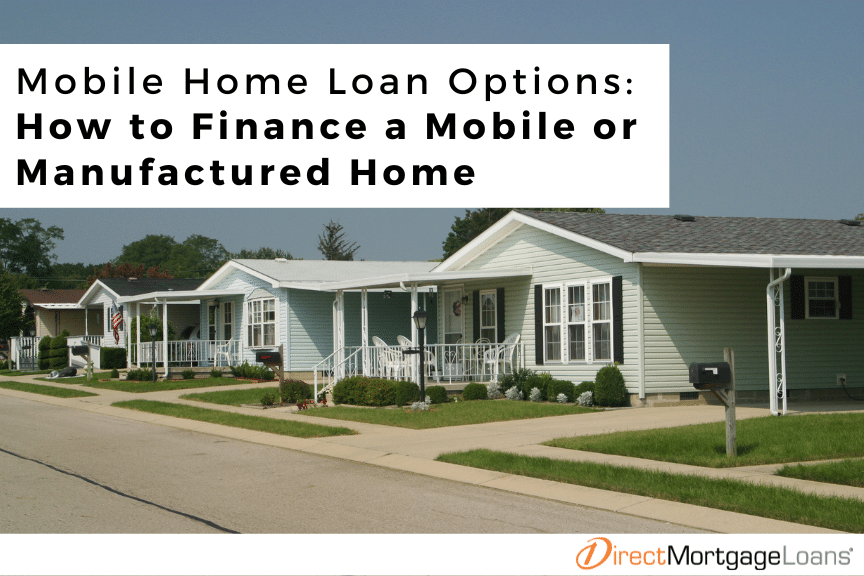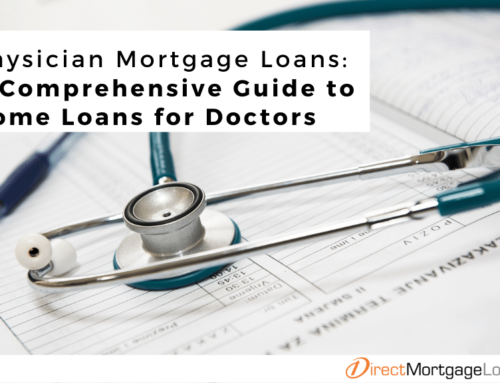Factory-built homes, such as manufactured, modular, and mobile homes, are gaining popularity. This is due to limited housing options and high home prices. Let’s delve into these housing alternatives, examining their advantages, drawbacks, and financing possibilities.
Subscribe to our blog to receive notifications of posts that interest you!
What is the difference between manufactured, modular, and mobile homes?
Manufactured, modular, and mobile homes vary in their construction, relocation, and regulation. Here is a breakdown of the differences between these three types of homes:
Mobile Homes
Mobile homes are factory-built housing structures that you can move to a residential site. According to the Department of Housing and Urban Development (HUD), they primarily constructed these homes before June 15, 1976. Although designed to be portable, people often place them in a fixed location for an extended period.
Manufactured Homes
Manufactured homes are prefabricated structures built in a factory and transported to a residential site in sections. Moreover, they must meet specific standards set by the Department of Housing and Urban Development (HUD). These homes normally sit on a permanent foundation and can include essential features like plumbing, heating, and electricity.
Modular Homes
Modular homes are pre-made structures built in a factory in multiple sections called modules. Workers transport these modules to a residential site and assemble them there. Modular homes must adhere to the same local building codes and standards as traditional stick-built houses.
They offer different house styles, size options, and the ability to customize the home to match what the homeowner likes. Once assembled, modular homes closely resemble traditionally built houses, making it hard to tell them apart.
Different Types of Loans for Mobile, Modular and Manufactured Home
Direct Mortgage Loans offers a range of financing programs for mobile, modular, and manufactured homes. These include FHA, VA, USDA, Fannie Mae, and Freddie Mac options to suit your needs.
Conventional Loan
You can use these loans to finance homes permanently attached to land, treating them as real property. Freddie Mac and Fannie Mae also offer specialized conventional loans.
- Freddie Mac MH Advantage Program: This program allows financing for manufactured homes with terms up to 30 years and low-down payment requirements. The home must be at least 12 feet wide, have 600 square feet minimum, and not be on leased land.
- Freddie Mac conventional loans for manufactured homes: These loans have similar requirements to Fannie Mae’s MH Advantage Program, including a permanent chassis, real property classification, and a minimum of 400 square feet of living space.
FHA Loan
The FHA provides home loans with fixed interest rates. They also have easier credit, debt-to-income, and down payment requirements. These benefits are specifically designed to assist first time homebuyers. They also offer Title I and Title II loans for manufactured homes.
- Title I Loans: Title I loans are for purchasing manufactured homes without including the land they sit on. To qualify, your property must serve as your primary residence, meet FHA guidelines, and have connections to utilities. These loans typically have short terms (up to 20 years) and lower loan limits.
- Title II Loans: Title II loans cover both the manufactured home and its land. However, you can not use them for mobile home parks or leased land. Only homes built after 1976 qualify, and the manufactured home must have real property classification.
FHA 100% Financing
This program provides homebuyers with 100% financing without requiring a down payment. However, closing costs are still required. This is achieved through a combination of a 1st and 2nd mortgage. This DPA program can be used to obtain an FHA loan and the amount of the 2nd mortgage can be up to 3.5% of the sales price or the appraised value, whichever is less. The term for the 2nd mortgage is 10 years.
Eligibility
To qualify for the program, you need to have a minimum credit score of 620 and a maximum Debt-to-Income (DTI) ratio of 45%. You must complete a Homebuyer Education course. And the eligible properties for financing are defined by FHA guidelines based on the maximum HUD county limit. The program covers single-family homes, duplexes, manufactured homes, PUDs, townhouses, and condos.
VA Loan
VA loans are available to veterans and qualifying active-duty service members. They offer benefits such as no down payment and no mortgage insurance. To qualify, the home must sit on a permanent foundation, adhere to HUD guidelines, and include the land beneath it in the purchase.
USDA Loan
The USDA Manufactured Housing Pilot Program extends financing options to existing manufactured homes built on or after January 1, 2006, in specific states.
Pros and Cons of Buying a Mobile, Modular or Manufactured Home
When contemplating the purchase of a mobile, modular, or manufactured home, it’s crucial to weigh the pros and cons associated with each housing option.
Pros of Buying a Mobile, Modular or Manufactured Home
- Affordable: A notable advantage of these homes is their cost-effectiveness compared to traditional site-built houses. Their construction in a factory setting significantly reduces labor and material expenses.
- Quick Construction Time: These homes offer a swift construction process thanks to modules prefabricated in a factory. This means you could move in sooner.
- Quality Standards: These properties adhere to strict quality standards set by the. Department of Housing and Urban Development (HUD), ensuring safety and quality.
- Energy Efficiency: Their energy efficiency is well-known because of their high-quality insulation and energy efficient appliances.
- Low Maintenance: These homes typically require less maintenance because of their durable materials and construction methods.
- Flexibility: They offer mobility, making them ideal for those who might need to relocate for work or other reasons.
Cons of Buying a Mobile, Modular or Manufactured Home
- Decline In Value: These homes tend to lose value over time since they are considered personal property.
- Financing Challenges: Securing financing for this type of housing can be more challenging because of perceived risk.
- Zoning Restrictions: Local zoning regulations may not permit them in all neighborhoods.
- Community Fees: Expect monthly fees when residing in a community park, covering various amenities.
- Resale Challenges: Selling these properties, particularly within a community park, can be difficult because of a limited market.
Steps to Buying a Mobile, Modular or Manufactured Home
- Get pre-approved for a manufactured home loan: This is an important first step, as it will give you an idea of how much money you can borrow and what your monthly payments will be.
- Determine a home-buying budget: Consider the down payment, closing costs, monthly mortgage payment, insurance, utilities, and any other expenses. You’ll likely find you can comfortably afford a home that costs less than you are pre-approved for.
- Make your wish list. Which features hold significance for you in a new home? Consider the number of bedrooms and bathrooms, the size of the home, the layout, and any other special features you’re looking for.
- Start looking at homes. There are a number of ways to find mobile, modular, and manufactured homes for sale. You can search online ads, visit manufactured home dealerships, or contact real estate agents who focus on these types of homes. If you need help finding a realtor, then we would be happy to connect you to one of our trusted partners.
- Once you’ve found a home you love, make an offer. Be sure to have the home inspected by a qualified professional before you finalize the purchase.
- Once the offer is accepted, you’ll need to close on the loan. This is where you’ll sign the necessary paperwork and take ownership of the home.
Refinancing a mobile or manufactured home has specific requirements. You’ll need to own the land it’s on and the home must be located on a permanent foundation for most refinancing options. When refinancing, keep in mind you’ll need to pay closing costs, and cover expenses like a new appraisal and title search.
In some instances, you may be able to finance these fees into the loan. Whether refinancing is right for you depends on market conditions, your finances, and your goals. Please reach out to an expert loan officer to discuss this option.
FAQ’s About Modular, Manufactured or Mobile Home Loans
What are the common challenges in securing loans for these homes?
Securing loans for mobile, manufactured, and modular homes presents common challenges. Lenders often charge higher interest rates because of the perceived higher risk. Additionally, they may require larger down payments, considering the potential lower resale value. Shorter loan terms are also common, reflecting the belief that these homes depreciate more quickly than traditional site-built ones.
How does the loan process for these homes differ from traditional home loans?
Getting a loan for mobile, manufactured, and modular homes is similar to traditional home loans but has some unique aspects. Specifically, lenders often insist on an appraisal of the property to ensure it aligns with the loan amount. This step safeguards the lender and borrower.
Additionally, lenders might request title insurance for these homes. This insurance covers financial losses from home title problems, giving peace of mind to both parties in the loan process.






Leave A Comment
You must be logged in to post a comment.